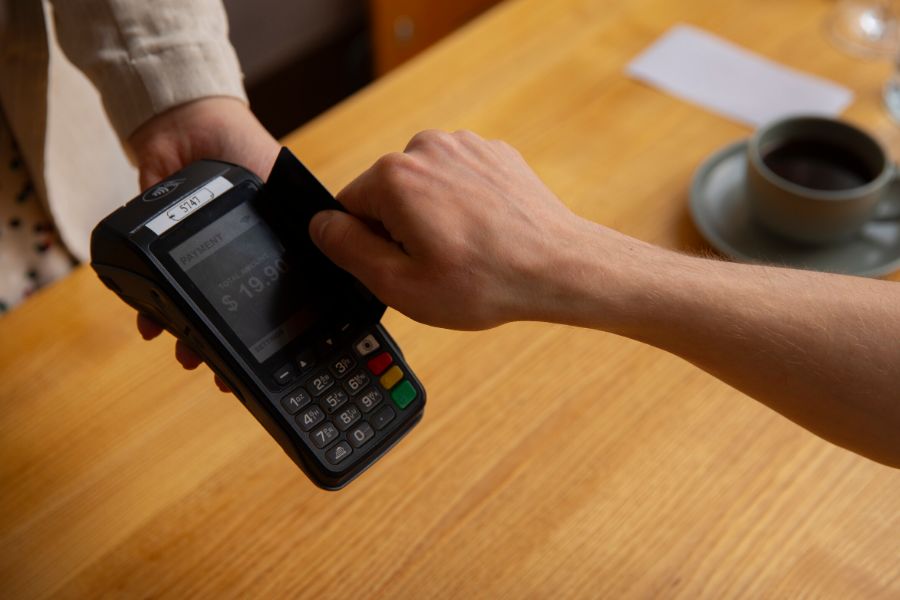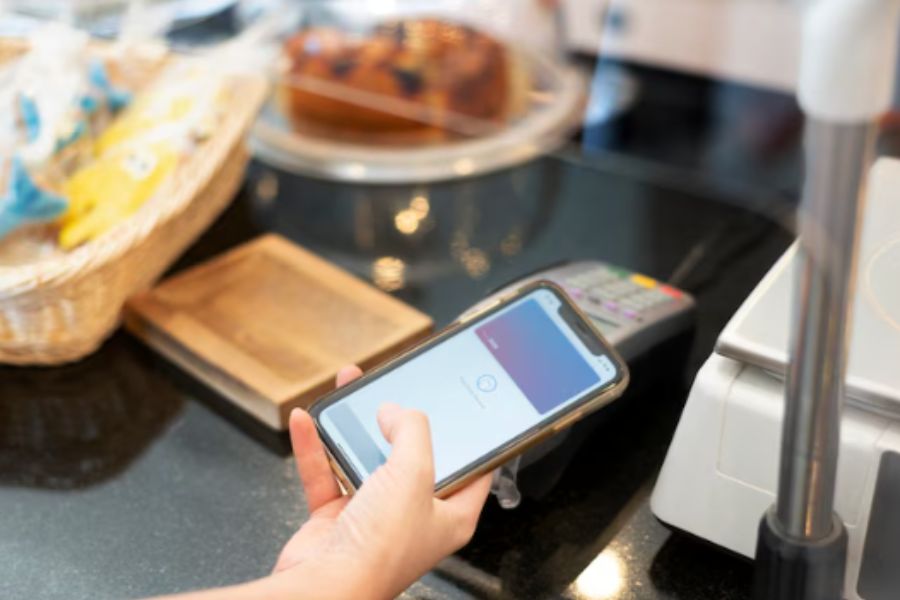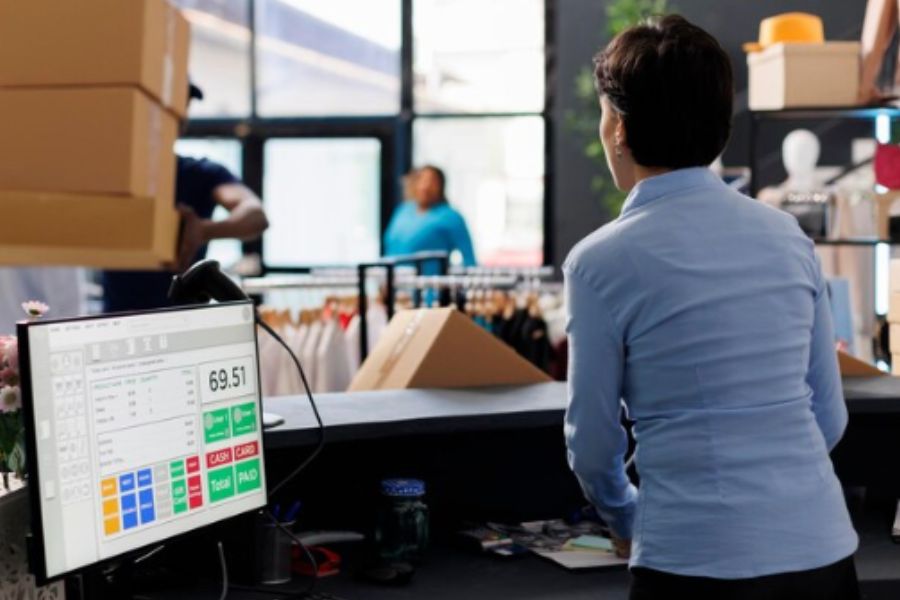The retail industry is constantly evolving and facing new challenges and opportunities. To stay competitive and profitable, retailers need to adopt innovative solutions that can help them streamline their operations, optimize their performance, and enhance their customer experience. One of the most important aspects of running a successful retail business is having a reliable and efficient point-of-sale (POS) system.
A POS system is the central hub of any retail store, where transactions are processed, inventory is managed, customer data is collected, and reports are generated. However, not all POS systems are created equal. Many retailers are still using legacy POS systems, which are outdated and inefficient. These traditional point-of-sale systems store data on local servers and run on a closed network. These systems have several limitations and drawbacks that can hinder the growth and profitability of retail businesses.
On the other hand, cloud POS systems are web-based solutions that store data in the cloud and run on any internet-connected device. Cloud POS systems offer many advantages and benefits that can help retailers overcome the challenges of legacy POS systems and future-proof their businesses. In this article, we will explore the challenges of these traditional POS systems, the benefits of cloud POS systems, and the best practices for replacing legacy POS systems with cloud POS systems.
The challenges of legacy POS systems for retail businesses
Legacy POS systems pose several challenges for retail businesses, such as:
High costs and low scalability
One of the challenges many retailers face today is using legacy point-of-sale (POS) systems. These are the systems that process transactions, manage inventory, and store customer data. However, legacy POS systems have several drawbacks that can affect the performance and profitability of retail businesses. Some of these drawbacks are:
- These systems are expensive to purchase, maintain, and upgrade. Retailers need to invest in specialized hardware, software licenses, servers, backups, and IT support. These costs can add up quickly and eat into the profit margins of retail businesses.
- Moreover, legacy POS systems are not scalable or flexible. They cannot handle high volumes of transactions or data, nor can they adapt to changing business needs or customer preferences. For example, if a retailer wants to expand to a new location or add a new product line, they may need to buy new hardware or software or hire more IT staff.
- Legacy POS systems also have limited compatibility and integration with other systems or platforms. They may not work well with newer technologies or devices, such as cloud computing, mobile payments, or e-commerce. This can create operational inefficiencies and customer dissatisfaction.
Limited data accessibility and synchronization
- Legacy POS systems store data on local servers that are not accessible from anywhere else. This means that retailers cannot access their data remotely or in real time. They also cannot synchronize their data across multiple locations or channels. This limits their ability to monitor their performance, make informed decisions, or provide consistent service to their customers.
For instance, if a retailer wants to check their inventory levels or sales reports, they may need to physically go to the store or wait for the data to be transferred manually. They may also face data discrepancies or errors due to lagging or incomplete data updates.
- Legacy POS systems also do not offer any analytics or insights on the data they collect. They do not provide any tools or features to help retailers understand their customers’ behavior, preferences, or feedback. This can make it difficult for retailers to optimize their marketing strategies, pricing policies, or product offerings.
Poor security and compliance Legacy
- Legacy POS systems are vulnerable to data breaches, theft, or loss. Since data is stored on local servers that are not encrypted or protected by firewalls, hackers can easily access or compromise the data. Additionally, legacy POS systems do not comply with the latest security standards or regulations, such as PCI DSS or GDPR. This exposes retailers to legal risks and penalties.
For example, in 2014, Home Depot suffered a massive data breach that affected 56 million credit and debit cards of its customers. The breach was caused by malware that infected its outdated POS system. The company had to pay $179 million in settlements and fines.
- Legacy POS systems also do not offer any backup or recovery options in case of data loss or damage. If a server crashes or a natural disaster occurs, retailers may lose all their valuable data and records. This can have devastating consequences for their business operations and reputation.
Low customer satisfaction and loyalty
- Legacy POS systems do not provide a seamless or satisfying customer experience. They are slow, prone to errors, and lack advanced features or integrations. They cannot process multiple payment methods, offer loyalty programs or discounts, or personalize recommendations or offers. They also cannot connect with other platforms or devices that customers use, such as e-commerce websites, mobile apps, or social media. This results in low customer satisfaction and loyalty.
For instance, if a customer wants to pay with their smartphone or use a coupon code, they may encounter difficulties or delays with a legacy POS system. They may also receive irrelevant or outdated information or suggestions from the system. This can frustrate the customer and make them less likely to return or recommend the store.
- Legacy POS systems also do not enable retailers to collect feedback from customers or engage with them after the purchase. They do not provide any channels or tools to communicate with customers via email, text messages, social media, etc. This can make it hard for retailers to build long-term relationships with customers and increase their retention and loyalty rates.

The benefits of cloud POS systems for retail businesses
Cloud POS systems offer many benefits for retail businesses, such as:
Lower costs and higher scalability
Cloud POS systems are affordable and cost-effective. Retailers do not need to buy or maintain any hardware, software licenses, servers, backups, or IT support. They only pay a monthly subscription fee based on their usage and needs. Cloud POS systems also provide unlimited storage space and processing power in the cloud. They can handle any amount of transactions or data, and scale up or down as needed. Some of the advantages of lower costs and higher scalability are:
- Retailers can save money on initial investment and operational expenses.
- Retailers can avoid the risk of obsolescence or depreciation of hardware or software.
- Retailers can adapt to changing customer demands or market conditions without any hassle.
- Retailers can expand their business to new locations or channels without any additional cost.
Real-time data accessibility and synchronization
Cloud POS systems store data in the cloud that is accessible from anywhere and at any time. Retailers can access their data from any device with an internet connection, such as a laptop, tablet, or smartphone. They can also synchronize their data across multiple locations or channels in real time. This enables them to track their performance, make data-driven decisions, and provide consistent service to their customers. Some of the benefits of real-time data accessibility and synchronization are:
- Retailers can monitor their inventory, sales, revenue, expenses, and profits in real time.
- Retailers can analyze their data and generate reports or insights that can help them improve their strategies or operations.
- Retailers can ensure that their data is always accurate and up-to-date across all platforms or devices.
- Retailers can offer a unified and seamless customer experience across all touchpoints.
Enhanced security and compliance
Enhanced security and compliance Cloud POS systems are secure and compliant. They encrypt and protect the data in the cloud with firewalls, antivirus software, and SSL certificates. They also comply with the latest security standards and regulations, such as PCI DSS or GDPR. They prevent unauthorized access or misuse of the data by using passwords, biometrics, or tokens. Some of the advantages of enhanced security and compliance are:
- Retailers can safeguard their data from hackers, viruses, malware, or natural disasters.
- Retailers can avoid the risk of data loss, theft, corruption, or breach.
- Retailers can meet the legal or ethical requirements of their industry or customers.
- Retailers can build trust and reputation with their customers and partners.
Improved customer satisfaction and loyalty
Cloud POS systems provide a seamless and satisfying customer experience. They are fast, accurate, and reliable. They offer advanced features and integrations that enhance the functionality and usability of the system. They can process multiple payment methods, offer loyalty programs or discounts, personalize recommendations or offers, and connect with other platforms or devices that customers use, such as e-commerce websites, mobile apps, or social media. This results in higher customer satisfaction and loyalty. Some of the benefits of improved customer satisfaction and loyalty are:
- Retailers can increase their sales, revenue, and profits by attracting more customers and retaining existing ones.
- Retailers can reduce their costs by lowering customer acquisition or retention expenses.
- Retailers can differentiate themselves from their competitors by offering a unique value proposition or competitive advantage.
- Retailers can create long-term relationships with their customers and foster customer advocacy or referrals.
The best practices for replacing legacy POS systems with cloud POS systems
Replacing traditional POS systems with cloud POS systems is smart for retail businesses that want to embrace innovation and stay ahead of the competition. However, replacing a POS system is not a simple or easy task. It requires careful planning and execution to ensure a smooth and successful transition. Here are some of the best practices for replacing legacy POS systems with cloud POS systems:
Assess the current state and needs of the business
Before choosing a cloud POS system, retailers need to assess the current state and needs of their business. They need to evaluate their existing POS system, identify its strengths and weaknesses, and determine what features or functions they need or want in a new system. They also need to consider their budget, goals, and expectations for the new system.
Choose a reliable and reputable cloud POS provider
After assessing their needs, retailers need to choose a reliable and reputable cloud POS provider that can meet their requirements and expectations. They need to research and compare different cloud POS providers, look at their reviews and ratings, and ask for references or testimonials. They also need to check their pricing, features, integrations, support, and security.
Plan and execute a smooth migration process
Once they choose a cloud POS provider, retailers need to plan and execute a smooth migration process. They need to coordinate with the provider, schedule the migration date and time, back up their data, and test the new system. They also need to communicate with their staff and customers about the change and prepare them for the transition.
Train and support the staff and customers on the new system
After the migration is complete, retailers need to train and support their staff and customers on the new system. They need to provide adequate training materials, tutorials, demos, or webinars to help them learn how to use the new system. They also need to provide ongoing support, feedback, and updates to ensure that they are comfortable and satisfied with the new system.
Conclusion
Legacy POS systems are outdated and inefficient solutions that can limit the growth and profitability of retail businesses. Cloud POS systems are modern and innovative solutions that can help retailers overcome the challenges of traditional POS systems and future-proof their businesses. By following the best practices for replacing outdated POS systems with cloud POS systems, retailers can enjoy lower costs, higher scalability, real-time data accessibility and synchronization, enhanced security and compliance, and improved customer satisfaction and loyalty.
If you are looking for a reliable and reputable cloud POS provider that can help you replace your old-fashioned legacy POS system with a cloud POS system, look no further than ConnectPOS. ConnectPOS is a global-awarded cloud POS system that offers many features and benefits for retail businesses. ConnectPOS is compatible with multiple devices, supports multiple payment methods, integrates with various platforms, and provides built-in advanced features, such as analytics, customization, and inventory management. ConnectPOS also offers a free trial, a flexible pricing plan, and a 24/7 support team. To learn more about this highly-rated POS or to request a free personalized demo, contact us today.



